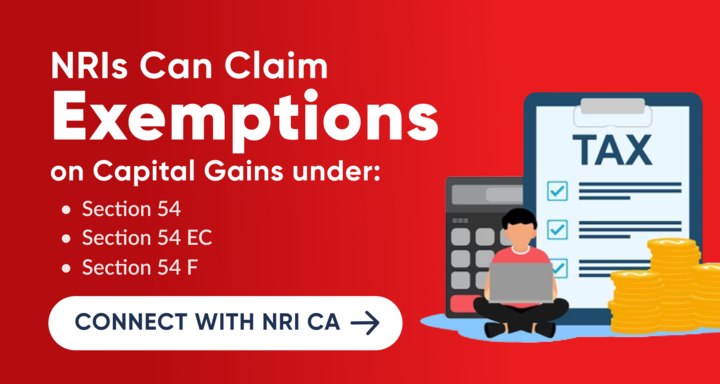In India, residents are taxed on their worldwide income, which means that foreign income earned by a resident Indian is subject to tax in India. Therefore, it is important for resident Indians to understand the tax implications of this income. In this blog, we will discuss in detail about the tax on foreign income of resident Indians and how they can claim tax credit on their foreign income.

Is Foreign Income Taxable in India?
The Income Tax Act, 1961 stipulates that resident individuals with global income are subject to tax in India. This includes income earned or received both within and outside India. The foreign income i.e. that income earned outside India is taxed at the applicable slab rate, after allowing for certain deductions and exemptions. In some cases, foreign income may be taxed at special rates or may not be taxed at all. It is essential for resident individuals to declare their worldwide income in their tax returns and pay tax on any income that is taxable in India.
Tax on Foreign Income of Resident Indians
If a resident of India has a foreign asset or an international investment that generates income, such earnings would be liable to taxation in India according to your applicable income tax slab rates. The following is a detailed procedure on how to incorporate your foreign income into your tax returns and pay taxes on it:
- The first step would be to convert your income earned outside India into Indian currency as per the reference rates.
- Upon converting the foreign income into Indian Rupees, it should be categorized under the relevant head of income. For instance, if the income was earned from a property located in a foreign country, it should be listed under the head ‘Income from house property’. On the other hand, if the income was earned from rendering services abroad, it should be included under ‘Income from salary’. It is crucial to choose the appropriate head of income based on the nature of the foreign income earned, and list it accordingly.
- Once listed, the foreign income will be considered as a part of your total income earned in India. Subsequently, you must add up all the incomes from different heads of income to determine the gross taxable income.
- Deductions and exemptions allowed under different sections of the Income Tax Act can be applied to this gross taxable income, which will result in the net taxable income.
- Finally, your tax liability can be calculated based on the net taxable income using the applicable income tax slabs, and the due tax must be paid accordingly.

Income Tax Slab Rates
The foreign income of resident Indians should be treated like any other income which is earned by that resident locally. Resident Indians are entitled to a minimum exemption of Rs 2,50,000 on their total income, and any income beyond that is subject to taxation according to the applicable income tax slab rates for FY 2022-23 (AY 23-24):
| Income Tax Slab | Old Regime Slab Rates | New Regime Slab Rates |
|---|---|---|
| Up to Rs. 2.50 lakh | Nil | Nil |
| Rs. 2,50,000 -Rs. 5,00,000 | 5% | 5% |
| Above Rs. 5 lakh to Rs. 6 lakh | Rs. 12,500 + 20% | Rs. 12,500 + 10% |
| Above Rs. 6 lakh to Rs. 7.50 lakh | Rs. 12,500 + 20% | Rs. 12,500 + 10% |
| Rs. 7.50,000 to Rs. 9,00,000 | Rs. 12,500 + 20% | Rs. 37,500 + 15% |
| Rs. 9,00,000 to Rs. 10,00,000 | Rs. 12,500 + 20% | Rs. 37,500 + 15% |
| Rs. 10,00,000-Rs. 12,00,000 | Rs. 1,12,500 + 30% | Rs. 75,000 + 20% |
| Rs. 12,00,000-Rs. 12,50,000 | Rs. 1,12,500 + 30% | Rs. 75,000 + 20% |
| Rs. 12,50,000-Rs. 15,00,000 | Rs. 1,12,500 + 30% | Rs. 1,25,000 + 25% |
| Above Rs. 15,00,000 | Rs. 1,12,500 + 30% | Rs. 1,87,500 + 30% |
TDS (Tax Deducted at Source)
In the event that your foreign income has TDS deducted from it, you have the option of utilizing the TDS credit to offset your tax liability. This can lower the amount of tax you owe, leaving only the remaining balance to be paid. However, in order to claim this credit, you must adhere to the guidelines set forth by the Double Tax Avoidance Agreement (DTAA). The DTAA rates can vary depending on the country in which you earned the income, so it’s important to consider the DTAA of that specific country.

DTAA Exemption Methods
You can take advantage of a DTAA by obtaining a Tax Residency Certificate that helps to establish your tax residency and makes you eligible for a DTAA relief claim. You can claim a credit under two DTAA exemption methods, that are exemption method and tax credit method.
- Under the exemption method, if the income is taxed in one country, it is exempted from tax in the other country.
- Under the tax credit method, income is taxed in both countries but the taxpayer can claim tax relief in the country of residence.
Points to Note for Claiming Foreign Tax Credit by Resident Indians
Given below are several points to check when claiming foreign tax credit as a resident:
- Firstly, you must determine if you meet the eligibility criteria based on your residency status and the terms of the agreement between your country and the one where you paid taxes.
- Secondly, you should examine the nature of your income to confirm if it falls under the scope of Double Tax Avoidance Agreement (DTAA).
- Then you should review the provisions of DTAA related to double taxation relief, foreign tax credit availability, and claiming rules.
- You should also check if there is a maximum limit on the amount of foreign tax credit that you can claim under the applicable DTAA.
- Then verify whether the taxes you paid are covered by the DTAA.
- You should explore the methods for claiming treaty benefits or relief from double taxation, such as the credit method or the exemption method.
- After this, you should submit the necessary documentation to support your claim for the foreign tax credit, such as proof of tax payment and other relevant papers.
- Finally, you should note the filing deadlines specified in the DTAA and make sure that you comply with them.
Documents Required for Claiming Foreign Tax Credit by Residents
Given below is the list of documents required when claiming foreign tax credit as an Indian resident:
- Any proof of foreign income that can include copies of salary slips, bank statements, or other documents showing the income earned abroad.
- Any proof showing tax paid abroad. The documents can include copies of tax returns filed in the foreign country or tax certificates issued by the foreign government.
- Proof of Indian residence.
- A copy of the Form 67 that is the foreign tax credit form, along with any supporting documents or evidence required to support the claim.

Contact SBNRI
For queries related to NRI tax deductions and exemptions, you can CONTACT us.. You can also download the SBNRI App to connect with our NRI Tax / investment experts and get end-to-end assistance related to NRI tax filing. SBNRI will also help you get a lower TDS Certificate.
You can also click on the button below to ask any questions. Visit our blog and YouTube Channel for more details.
FAQs
The full form of DTAA is Double Tax Avoidance Agreement. It is an agreement signed between India and 80+ countries to help taxpayers to avoid double taxes on the same income.
Yes. A DTAA has been signed between India and the UK stipulating a 15% TDS.
Form 67 is required by taxpayers who seek to claim Foreign Tax Credit. It is important to provide Form 67 on or before the due date of filing return of income.



